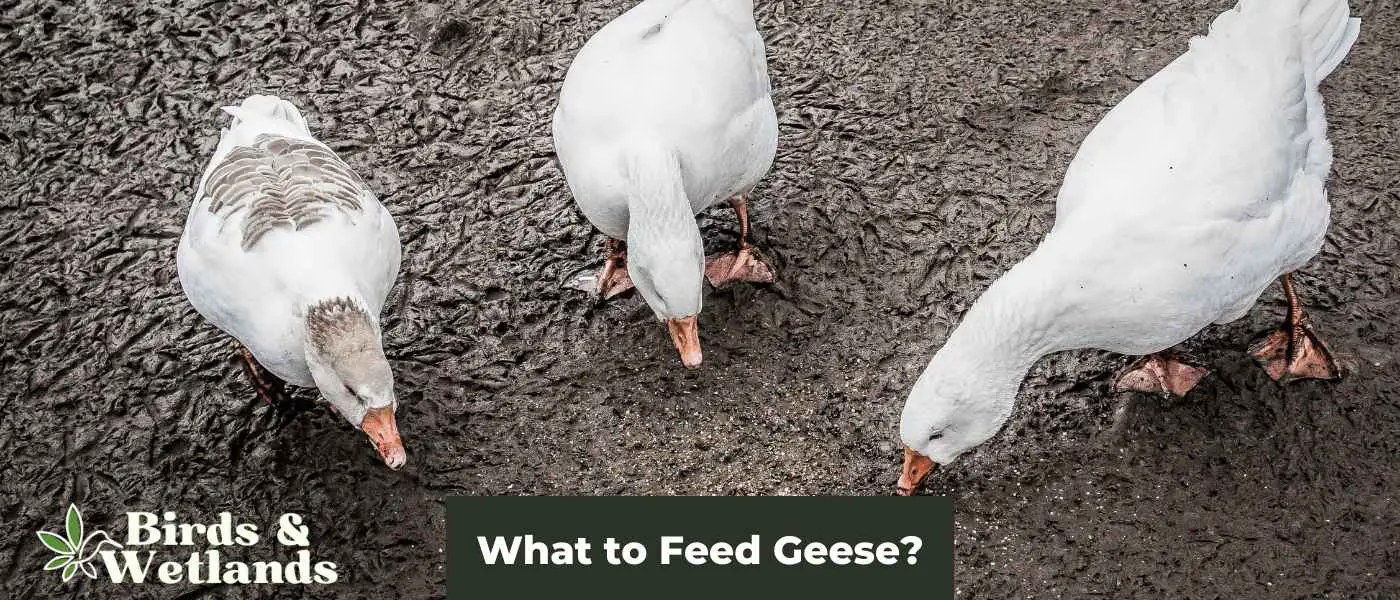There are various misconceptions about feeding geese. Many people believe that bread is the best thing to give them, but this is not the case. In this blog post, we’ll talk about what to feed geese and offer advice on ensuring they’re getting enough nutrition and how to provide them with a safe environment. So, keep reading for more details!
Key Points on What to Feed Geese
- Geese can get all the nutrients they need from plant materials.
- Avoid feeding geese bread, moldy foods, junk food and processed meats. These foods are high in salt and provide little to no nutritional value.
- You can make your geese happy by providing them with a lot of grass and other plants. They love grains such as whole oats too!
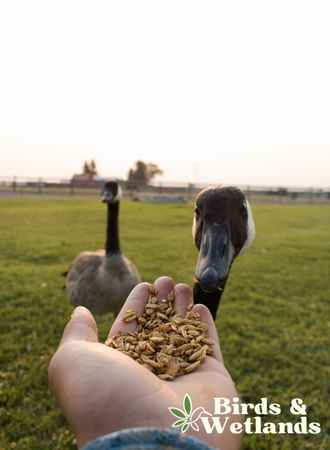
Why you shouldn’t feed the wild geese?
You might think of feeding the ducks and geese at your local park as a fun way to connect with nature. However, you may be unaware that this simple act can seriously affect the birds. Waterfowl can quickly become conditioned to rely on human handouts, leading to various issues.
Fed birds, for example, frequently become more aggressive and less wary of humans. This can result in conflict between birds and humans and injuries in some cases.
Furthermore, fed birds may have difficulty competing for food and shelter with wild birds. They may not be able to survive as a result. Finally, it’s best to admire waterfowl from afar and leave them to fend for themselves in the wild.
What should you not feed a goose?
Here are some of the foods you shouldn’t feed geese with:
Bread
Bread is a staple human food, but there are foods better for geese. The main reason why it is not recommended to feed wild geese bread is that this food is high in carbohydrates while being low in nutrients.
When geese eat bread, they consume empty calories while receiving no protein, fat, or essential vitamins and minerals. Over time, this can lead to weight gain and health issues.
Furthermore, uneaten bread can attract pests such as rats and mice, harming both geese and humans.

Junk Food
Junk food is typically high in calories, fat and preservatives. While feeding geese junk food may not appear to be a problem at first, this food can harm these birds’ health. In fact, junk food has been linked to obesity and heart disease in geese. Furthermore, the high salt and sugar content of junk food can lead to dehydration and electrolyte imbalance.
French fries are a popular food all over the world. Because of the high levels of fat and salt, they are frequently regarded as unhealthy food for humans and animals.
Geese love small, soft foods, and French fries fit the bill. However, French fries are not natural foods for geese and can cause them many health problems.
The high-fat content of French fries can cause obesity in geese, and the salt content can cause dehydration. Furthermore, the small size of French fries can make them difficult for geese to digest.
Processed Foods and Meats
Processed meats and foods are detrimental to geese for several reasons. For starters, these foods frequently contain high levels of salt, fat, and other toxic additives to geese.
Second, processed meats and foods are often highly processed, so many nutrients have been removed. This can result in malnutrition in geese because they lack the nutrition to stay healthy.
Finally, processed meats often come with growth hormones and other toxic chemicals. These chemicals can accumulate in the goose’s body over time and cause health problems.
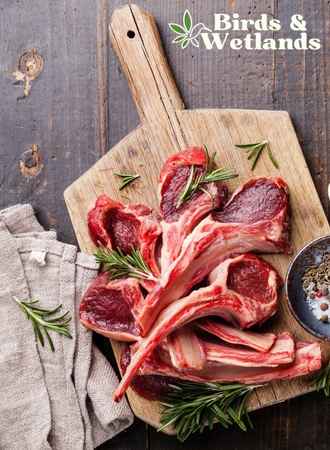
Moldy Food
Moldy food is bad for geese for a variety of reasons. For starters, moldy food can contain toxins that can cause serious damage and make the goose sick. Second, moldy food can be difficult to digest, causing stomach and intestinal problems.
What is safe to feed wild geese?
There are a few guidelines to follow and many factors to consider when feeding wild geese. To begin, don’t feed them anything you wouldn’t eat yourself. Second, choose foods high in protein and low in fat. Third, make sure the food is the right size for the goose’s beak.
With these considerations in mind, some of the best foods to feed wild geese include sunflower seeds, cracked corn, and leafy greens.
Geese naturally eat sunflower seeds. They are high in fat, a vital energy source for birds. In addition, small piles of seeds are a good source of protein, essential for building strong muscles and feathers. These seeds also contain various vitamins and minerals, including zinc, which is important for a healthy immune system.
Geese eat insects. Insects are an important part of a goose’s diet. Mealworms and freeze-dried crickets are two popular options because they mimic the types of insects that geese eat in the wild. In addition to being nutritious, insects are high in protein and fat, both of which are required for goose growth and development.
When selecting an insect to feed your goose, make sure it is of high quality and free of pesticides. High-quality insects are available at pet stores or online retailers.
Cracked corn is an excellent source of energy for a goose. Geese require a lot of energy for their long flight, and corn provides them with the necessary calories. Besides being calorie-rich, they are also easy to digest and packed with vitamins and minerals which are good for respiratory health and digestive tract.
Fresh greens like lettuce and spinach are high in nutrients for these birds. Greens are a good source of fiber in addition to essential vitamins and minerals. This keeps geese regular and can help prevent problems like intestinal blockages. Fresh greens contain a lot of water, which is necessary for keeping these birds hydrated.
Of course, there are other foods that you can certainly offer geese, so to be on the safe side, feed geese fresh produce and grains.
Can you feed geese chicken food?
While chicken food may seem like it would be a suitable source of niacin for geese, this is not the case. Geese require more niacin than chickens to remain healthy, and chicken food does not provide enough of this nutrient.
Niacin deficiency in goslings can lead to serious leg, angel wing conditions and joint issues, so it’s important to ensure that they get enough of this essential vitamin. The best way to ensure that geese get the nutrients they need is to feed them specially formulated goose food.
This food contains the right balance of vitamins and minerals to keep geese healthy and happy. Alternatively, you can make sure that your flock is getting enough niacin and meeting their nutritional needs by adding Brewers yeast to their food.
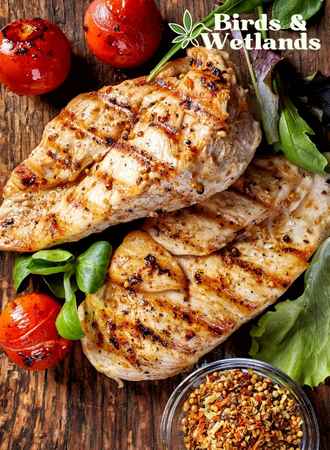
What do domestic geese eat?
Whether you’re adding adult geese to your flock or raising goslings or young geese, it is important to understand your waterfowl’s dietary needs. Backyard geese are primarily grazers and you will always see them eating grass and day-feeding. They have special body adaptations that allow them to break down and digest food quickly.
Unlike ducks, free-range geese are primarily herbivores even though they occasionally eat small animals such as insects. Their typical diet consists of natural food such as grasses and grains, with occasional treats of whole wheat, scratch grains, broccoli, cucumbers, peas, sweet potatoes, bananas and small fish. They also love to submerge their heads in the water and graze on aquatic plants, seed heads and sedges.
Domesticated geese have larger bodies than their wild cousins. This means you need to supplement your goose diet with other food sources such as kelp.
Kelp is a type of seaweed that grows in nutrient-rich, shallow waters. Because of its high nutritional content, it is an excellent source of vitamins and minerals. It is frequently used as a dietary supplement.
Geese can enjoy kelp as a food source. These water birds are herbivores, meaning they eat mostly grasses and other vegetation. Kelp is rich in iodine and other trace minerals, which can benefit geese.
Furthermore, kelp contains a high concentration of sodium alginate, which helps to reduce the amount of lead and other heavy metals that geese can absorb from their surroundings.
Another thing to consider when choosing food for your geese is the weather. During the winter months, there is scarcity of food. And if you live in the Pacific Northwest where there are long stretches of dark, cloudy weather, you need to supplement your goose’s diet with extra Vitamin D. Vitamin D deficiency in geese can lead to weak bones and egg shells. They also need Vitamin E and amino acids.
Do geese need commercial feed?
Commercial feed is not required for geese. In fact, female geese don’t need layer feed with high calcium levels because their laying season is short, and they lay few eggs. They don’t need a high-protein diet, either. They are content with a diet consisting of orchard grass and grain.
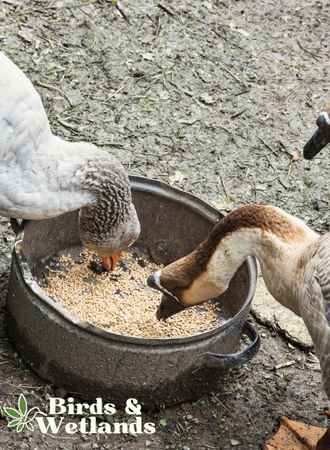
Do geese need drinking water?
Geese are waterfowl, so naturally, they require water access to stay healthy. However, these birds can obtain most of the water they need from the food they consume.
Aquatic plants, which are high in moisture, are an important part of a goose’s natural diet. In fact, a goose can obtain up to 80% of its water requirements from its food. The remaining 20% can be obtained from ground puddles or dew.
While geese require fresh drinking water, they are not as dependent on it as other animals. This is one of the reasons why geese can thrive in a wide range of environments.
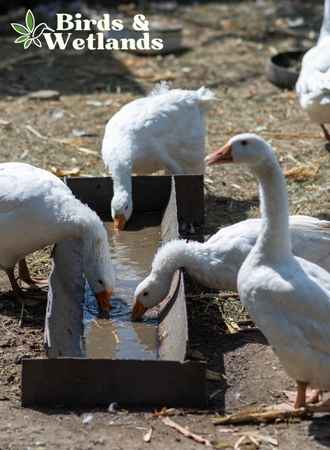
We’ve delved deep into some specific foods for Geese so you can have a complete comprehensive guide to the best food for geese:

